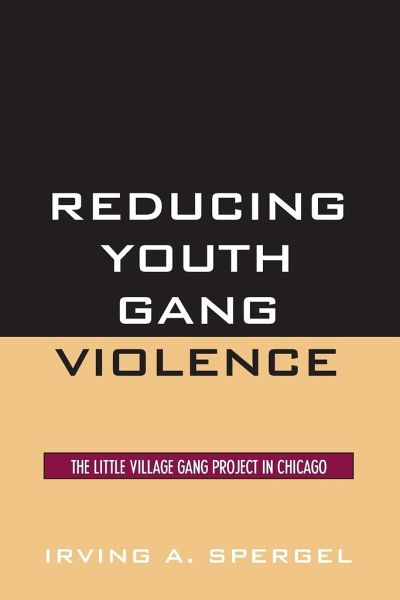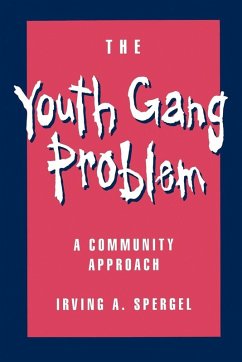
Reducing Youth Gang Violence
The Little Village Gang Project in Chicago
Versandkostenfrei!
Versandfertig in 1-2 Wochen
67,99 €
inkl. MwSt.
Weitere Ausgaben:

PAYBACK Punkte
34 °P sammeln!
Spergel details the efforts of his Chicago youth gang project, a comprehensive, community-based model designed to reduce gang problems, including violence and illegal drug activity. He shows the successes and failures at each level: individual-youth, gang-as-unit, community, and policy development. This is a valuable model and methodology for a comprehensive approach to gang prevention and intervention which will be an important reference for policy makers, criminologists, gang researchers and community developers.














